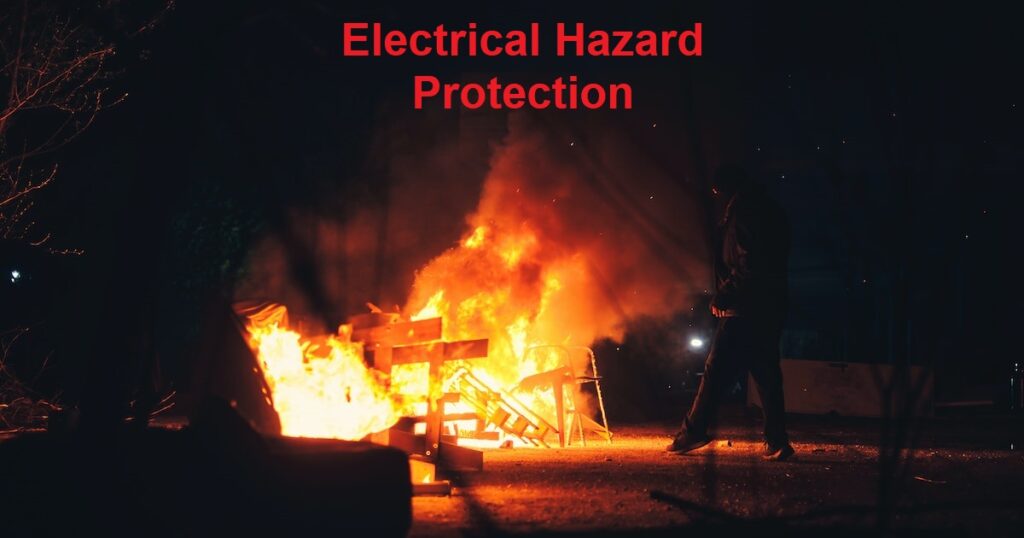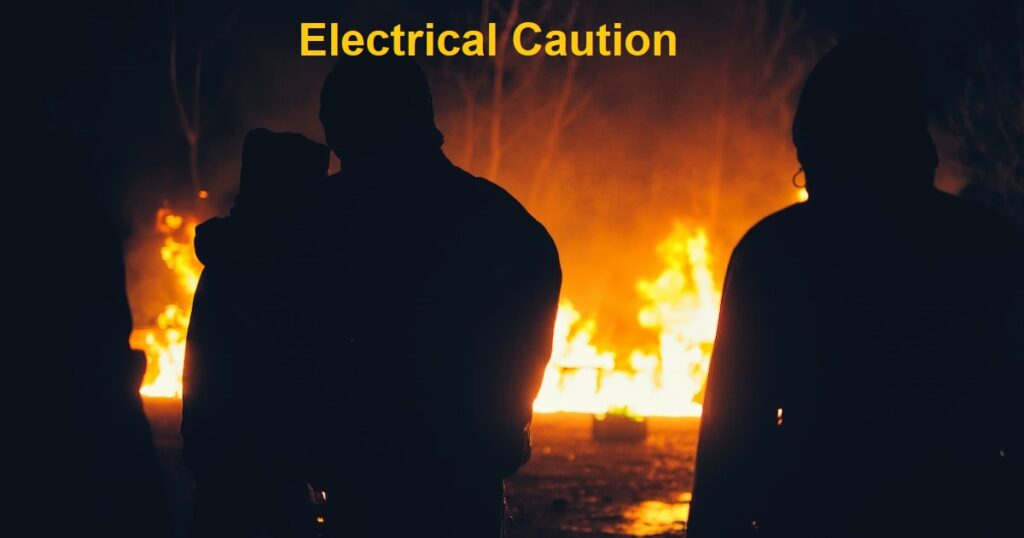Electricity has become an essential part of our daily lives. It powers our homes, businesses, and even our modes of transportation. However, it’s important to remember that electricity can be dangerous if not handled properly. In this article, we’ll discuss electrical safety and provide some tips on how to stay safe from electrical hazards.
Understanding Electrical Hazards
Before we dive into safety tips, it’s important to understand what electrical hazards are. Electrical hazards are any conditions or situations that could potentially cause harm to people or property through the use of electricity. Some examples of electrical hazards include:
- Electrocution: This is the most severe electrical hazard and can be fatal. It occurs when a person comes into contact with a live electrical current.
- Burns: Electrical burns can be caused by contact with electrical currents or hot surfaces.
- Fires and explosions: Electrical fires can be caused by faulty wiring, overloaded circuits, or damaged electrical equipment.
General Electrical Safety Tips
To reduce the risk of electrical hazards, it’s important to follow some general electrical safety tips:
Tip 1: Use Qualified Electricians
Always use a qualified electrician for any electrical work in your home or business. They have the knowledge and expertise to safely install and repair electrical systems.
Tip 2: Turn Off the Power
Before doing any electrical work, always turn off the power to the area you’re working on. This can be done by switching off the circuit breaker or removing the fuse.
Tip 3: Inspect Electrical Cords
Regularly inspect your electrical cords for signs of damage such as fraying or cracking. Replace any damaged cords immediately.
Tip 4: Use Electrical Devices Safely
When using electrical devices, always follow the manufacturer’s instructions. Never use electrical devices near water and never touch them with wet hands.
Tip 5: Use Ground Fault Circuit Interrupters (GFCIs)
Install GFCIs in areas where water is present, such as bathrooms and kitchens. GFCIs are designed to protect against electrical shock by quickly shutting off power in the event of a ground fault.

Electrical Hazard Protection
Despite taking all the necessary precautions, electrical hazards can still occur. That’s why it’s important to have electrical hazard protection in place. Here are some examples of electrical hazard protection:
Tip 1: Use Circuit Breakers and Fuses
Circuit breakers and fuses are designed to protect against electrical overloads and short circuits. They work by quickly shutting off power when a circuit is overloaded or shorted.
Tip 2: Install Surge Protectors
Surge protectors are designed to protect against power surges caused by lightning or other power fluctuations. They work by diverting excess voltage to the ground, protecting your electrical devices.
Tip 3: Use Residual Current Devices (RCDs)
RCDs are similar to GFCIs and are designed to protect against electrical shock. They work by quickly shutting off power in the event of a ground fault.
Electrical Hazard Awareness
To stay safe from electrical hazards, it’s important to be aware of potential dangers. Here are some tips on electrical hazard awareness:
Tip 1: Be Aware of Overloaded Circuits
Overloaded circuits can cause electrical fires. Be aware of how many electrical devices are plugged into a circuit and avoid overloading it.
Tip 2: Stay Away from Power Lines
Stay away from power lines, especially during storms or windy conditions. Power lines can be dangerous and can cause electrocution.
Tip 3: Don’t Touch Electrical Equipment with Wet Hands
Water is a good conductor of electricity, so never touch electrical equipment with wet hands. Always dry your hands thoroughly before touching electrical equipment.

Electrical Caution
Even with all the safety precautions and hazard protections in place, accidents can still happen. That’s why it’s important to exercise caution when dealing with electricity. Here are some tips on electrical caution:
Tip 1: Never DIY Electrical Repairs
Electrical repairs should always be left to qualified electricians. Attempting to repair electrical systems on your own can be dangerous and can result in serious injury or death.
Tip 2: Use Caution Around Water
Water and electricity don’t mix. Always use caution when working with electrical devices near water, and never use electrical devices in or near water.
Tip 3: Keep Electrical Devices Away from Children
Children are naturally curious and may be tempted to play with electrical devices. Keep electrical devices out of reach of children and teach them about electrical safety.
Conclusion
Electricity is a powerful force that can be both helpful and dangerous. By following general electrical safety tips, having electrical hazard protection in place, being aware of potential electrical hazards, and exercising caution when dealing with electricity, you can help ensure your safety and the safety of those around you.
FAQs
- What should I do if I experience an electrical shock?
If you experience an electrical shock, seek medical attention immediately. Even if you feel fine, it’s important to get checked out, as electrical shocks can cause internal injuries.
- How often should I have my electrical system inspected?
It’s a good idea to have your electrical system inspected every 10 years, or sooner if you’re experiencing electrical issues.
- Can I use an extension cord as a permanent solution?
No, extension cords should only be used as a temporary solution. If you need to extend the reach of an electrical device permanently, have a qualified electrician install additional outlets.
- How can I tell if my electrical system is overloaded?
If you’re experiencing flickering lights, tripped circuit breakers, or if your electrical devices aren’t working properly, your electrical system may be overloaded.
- What should I do if I see a downed power line?
Stay away from the downed power line and call your local power company immediately. Don’t attempt to move the power line or touch it in any way.
